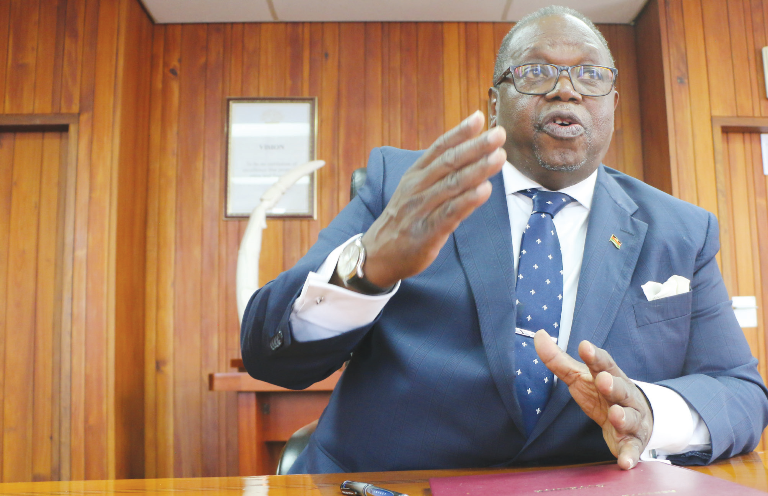IMF team in tomorrow amid hope for ECF deal
The International Monetary Fund (IMF) mission team is scheduled to arrive tomorrow for crunch negotiations with the Malawi Government which is seeking approval of a new Extended Credit Facility (ECF) .
Secretary to the Treasury MacDonald Mafuta Mwale said in an interview on Monday that the IMF team will meet representatives of the central bank, commercial banks, private sector, heads of selected State-owned enterprises as well as civil society representatives, among others.

“As Treasury, we will facilitate the IMF meetings with a list of several stakeholders which they have asked us to identify on their behalf,” he said.
The meetings are aimed at helping the IMF understand the context of the state of business operating environment.
During a press conference on Friday, Minister of Finance and Economic Affairs Sosten Gwengwe said in line with the prospective new ECF, government will undertake bold economic reforms and warned Malawians it will take time before the economic pain eases .
He said: “For us to prevail through the current economic squeeze, we have to take tough decisions that will bring more economic pain among Malawians, but it is a prescription that will make the country become better going forward.
“We believe that the economic pressure points that we are experiencing now can best be addressed by the IMF programme because beyond the fund, we do have partners who are sympathetic about our vulnerabilities.”
The minister, however, said since the partners use their taxpayers’ money, they would want assurance that the reforms the Malawi Government is putting in place are solid to ensure their money is safeguarded.
Gwengwe said government has been engaging with the IMF on a weekly basis and that most of their concerns have been addressed.
He said the IMF is not coming for discussions, but negotiations for the new ECF following prolonged virtual discussions for the past three months.
“They will appreciate our reform agenda and we need to commit to it as a country. We will be negotiating the ECF terms, the past misreporting has been a crucial issue, they take it very seriously because it borders on dishonesty, sometimes even criminality,” Gwengwe said.
The minister’s remarks come as Malawians are calling for an urgent fix of the economy on the back of one of tough economic times with prices of goods and services rising amid scarcity of basic commodities such as cooking oil.
The fiscus is also struggling to raise revenue, leaving deficits that are being financed by expensive borrowing.
In the 2022/23 National Budget, the deficit is pegged at K884 billion in nominal terms although at 7.7 percent of the gross domestic product (GDP), Treasury said it is better than during the stop-gap financial year that covered the July-March 31 period ahead of the new financial calendar that starts on April 1 2022.
However, in terms of debt sustainability which is an issue for the IMF, Gwengwe said with support and guidance from the European Union, they have identified a company, Global Sovereign Advisory (GSA) to analyse the problem.
He said the debt issue for Malawi is not so much about its volume hovering around 56 percent of the GDP.
Rather, he said, the main challenge is debt service sustainability.
Ministry of Finance and Economic Affairs director of debt and aid Nations Msowoya described the GSA as a French company specialising in debt advisory services.
He said they were selected after a competitive process and as they will be working with Malawi. They have also worked with Mali and Chad in Africa as well as Greece in Europe.
Last week, President Lazarus Chakwera held virtual bilateral discussions with IMF managing director Kristalina Georgieva, in which he expressed his eagerness to see the IMF Team she is sending to visit Malawi.
During the talks, the President said he is keen to see his government discussing and agreeing with IMF terms for a potential ECF programme for Malawi.
Treasury figures show that as at December 31 2021, public debt stock stood at K5.8 trillion or 56.8 percent of rebased GDP as compared to a stock of K5.45 trillion, or 58.8 percent of GDP in June 2021.
This equates to an increase of 7.1 percent in absolute terms, but a decrease of two percentage points as a ratio of GDP.
At end December 2021 public debt stock comprised K2.8 trillion (27.3 percent of GDP) external debt and K3.04 trillion (29.5 percent of GDP) domestic debt.





